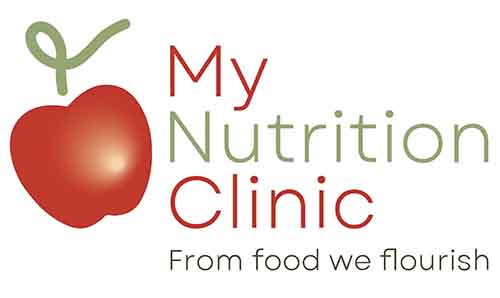Child Nutrition
What is a food allergy?
A food allergy is when your immune system is stimulated by a particular protein in food. Reactions can be immediate (0 to 2 hours) delayed (4 hours or more) or a mix of the two. Allergic reactions with rapid onset can be detected by blood tests (RAST / IgE) or Skin Prick Tests (SPT). Allergic reactions which have a delayed onset of symptoms will not be detected by the above test.
There are many substances which can act as allergens and some people are very sensitive, others less so or not at all.
What is the difference between a food allergy and intolerance?
An allergy is when the immune system is involved. Allergic reactions can vary from mild to severe, they can be immediate (onset within 2 hours) or delayed (onset 4 hours or more). It is also possible to have a mix of the two. A food intolerance does not involve the immune system and can be triggered by a food chemical (natural or added to foods). See below for more details.
What tests are available for food allergies?
It is important to note that not all allergies can be detected by blood tests (IgE or RAST) or SPT. Only those allergies which have a rapid onset of symptoms are detected by the above tests, and are known as IgE mediated Allergies. When you have an allergic reaction, the immune system makes IgE antibodies which release histamine. The amount of histamine released is gauged through the RAST or SPT.
Delayed onset of symptoms are related to Non IgE mediated Allergies. These are (T) cell mediated reactions and no IgE antibodies are produced, therefore RAST / IgE and SPT results will be negative. This does not mean that the person does not have an allergy, simply that a different mechanism is involved and that there is no risk of anaphylaxis (A severe generalised allergic reaction which untreated is life threatening). We test can check for non IgE allergies through diet changes.
A non IgE Allergy, although not life threatening, can be very debilitating and not always easy to diagnose.
How can a paediatric dietitian help?
We can help to pinpoint which foods (if any) are causing the allergic reaction. We will then plan for your child (and family if appropriate) to exclude the suspected or confirmed allergens and ensure that your child’s diet is balanced. Certain allergies tend to be limited to the early years of childhood so we can also help with the safe reintroduction of foods when appropriate.
We can help with the practicalities of elimination and reintroduction. This is very important in children to ensure their nutrition needs are met because unlike adults – they are still growing!
A dietitian will provide practical tips in cooking, eating out, identification of ingredients and ensure that nutritional needs are met
What happens during an appointment?
A detailed dietary assessment determines if further tests will be useful
We will take details of the family medical history, the usual diet, the social and physical environment as well as symptoms, suspected triggers and timing of symptoms. This detailed assessment acts as a guide to determine whether further tests will be useful and helps to interpret their results. We will either contact your GP with the findings or order the appropriate tests directly and discuss with your GP. Based on the results an action plan will be made.
The diagnosis of a non IgE allergy is possible only after taking a detailed history, eliminating the suspected allergen/s and following up with a controlled challenge to confirm. Sometimes allergies are not food related. However, cross reactions between environmental allergens such as pollens and grasses can occur with foods (particularly fruits) in which case a dietitian can help you to understand your symptoms. It is important to ask the right questions to enable treatment with the right health professional.
Don’t try an elimination diet without a dietitian
Children are still growing and very much need a nutritionally balanced diet to support their development. An elimination diet is not something to take lightly as it has many implications for family life. If an elimination diet is needed, it is just as important to reintroduce foods back into the diet to determine how much you can tolerate before symptoms develop. Re-introducing foods and getting the balance of the diet right will help ensure children are well nourished as well as help them develop life-long healthy relationships to food.
A paediatric dietitian is able to guide you along these steps and to clarify what the best treatment plan for your child would be.
 Author: Jacqui Palmer, Paediatric Dietitian for My Nutrition Clinic
Author: Jacqui Palmer, Paediatric Dietitian for My Nutrition Clinic



